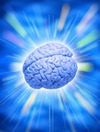Dr. Randi Fredricks, Ph.D.
 While psychotherapists and other mental health professionals who work with children and adults with Attention Deficit Hyperactivity Disorder (ADHD) and Attention Deficit Disorder (ADD) understand the differences, most laypeople do not. What follows is a simplified explanation of some of those differences.
While psychotherapists and other mental health professionals who work with children and adults with Attention Deficit Hyperactivity Disorder (ADHD) and Attention Deficit Disorder (ADD) understand the differences, most laypeople do not. What follows is a simplified explanation of some of those differences.
ADD is similar to ADHD except ADD does not have the hyperactivity. ADHD and ADD do not usually come alone. There are many other conditions that are commonly associated with ADD and ADHD. Depression, Bipolar Disorder, Oppositional Defiant Disorder, Conduct Disorders, Central Auditory Processing Disorder, Learning Disabilities and Addiction are just some of the conditions that can appear with ADD and ADHD.
Some studies have indicated that between 50% and 70% of individuals with and ADD and ADHD also have some other condition. As with many disorders, symptoms can be more intense for some people than others. Even the milder symptoms can drive a person to distraction.
ADD and ADHD can cause functional and learning difficulties in work and school. The inability to sit still or to be easily distracted can interfere with the ability to succeed. However, ADD and ADHD are not learning disabilities.
ADD and ADHD do display some similar symptoms. You will often see the terms “ADD” and “ADHD” used together which only serves to blur the distinction between the two. The table below explains some of the differences between ADD and ADHD.
ADD without Hyperactivity
With ADD without hyperactivity, the cause seems to reside primarily in the parietal lobe of the brain. The frontal lobe processes are intact.
The main indicators are fear, anxiety, and low brain energy leading to a capacity problem. There is also slow cognitive thinking, daydreaming, avoidance and procrastination.
People with ADD also experience mental confusion and poor memory retrieval. But the frontal processes are intact so these people rely on logic.
In terms of social interactions, people with ADD are shy and withdrawn They are often seen and not heard. Their information processing difficulties lead to not knowing how to talk, dress, or act. Additionally, conversation is difficult because of slow thinking or missed information and they can manipulate because of fear of others’ anger or guilt about asking directly. They tend to interrupt because their wandering thoughts will cause them to forget what they want to say. May appear to not be listening but this is really due to the person’s information processing deficit.
ADHD with Hyperactivity
In contrast, ADHD with hyperactivity affects the size and structure of many brain areas differently. There is a lack of activity in the frontal area (Hypofrontality). This is linked to a deficiency of the neurotransmitters dopamine and norepinephrine which are involved with arousal and alertness. Low serotonin is linked to impulsivity and problematic behavior.
People with ADHD often find that their self-regulation is weak because the control mechanisms of the frontal lobe are not functioning well, e.g. self talk is not used; they are unaware of the consequences to their actions, fast cognitive speed contributes to impulsiveness.
Another common complaint in people with ADHD is that they cannot maintain focus so have poor sustained effort; race from task to task; are easily bored; forget and lose things because they missed information due to being distracted; need external motivation.
People with ADHD face a different set of social problems. They often do not connect with others and can be rejected socially because of inappropriate behavior. In some instances, they are intolerant and can become verbally abusive, cannot negotiate so they manipulate others, and tend to interrupt because of impulsivity and lack of control.
References
Kollins SH, McClernon FJ, Fuemmeler BF. Association between smoking and attention-deficit/hyperactivity disorder symptoms in a population-based sample of young adults. Arch Gen Psychiatry. 2005 Oct;62(10):1142–1147.
Biederman J, Monuteaux M, Mick E, et al. Is cigarette smoking a gateway drug to subseqeunt alcohol and illicit drug use disorders? A controlled study of youths with and without ADHD. Biological Psychiatry. 2006;59:258–264.
Wilens T, Biederman J, Mick E. Does ADHD Affect the course of substance abuse? Findings from a sample of adults with and without ADHD. American Journal on Addictions. 1998;7:156–163.
Levin FR, Evans SM. Diagnostic and treatment issues in comorbid substance abuse and adult attention-deficit hyperactivity disorder. Psychiatric Annals. 2001;31(5):303–312.
Wilson JJ, Levin FR. Attention-deficit/hyperactivity disorder and early-onset substance use disorders. J Child Adolesc Psychopharmacol. 2005 Oct;15(5):751–763.
Vitiello B. Long-term effects of stimulant medications on the brain: possible relevance to the treatment of attention deficit hyperactivity disorder. Journal of Child and Adolescent Psychopharmacology. 2001;11(1):25–34.
About the Author
Randi Fredricks, Ph.D. is a practicing therapist, researcher and author specializing in the treatment of anxiety, depression, addiction, eating disorders, and related disorders. Dr. Fredricks is a best-selling author of several books on complementary and alternative treatments for mental health. For more information on Dr. Fredricks work, visit her practice website San Jose Counseling and Psychotherapy.